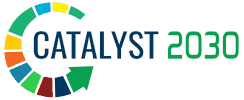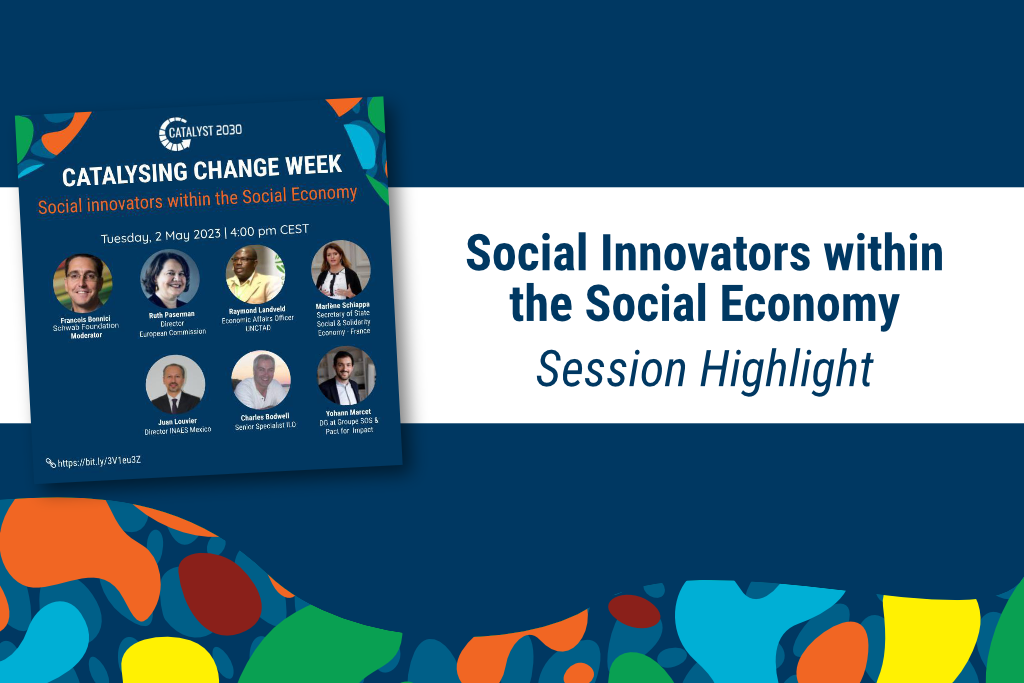The April issue of Catalyst 2030 Newsletter shared the exciting announcement that the UN General Assembly had just adopted the resolution Promoting a Social and Solidarity Economy. For the social innovation ecosystem, this was affirmation of the decades-long work advocating for a more just economy. The resolution calls on governments to develop and implement national, regional and local strategies in support of a social economy.
A CCW2023 session Social Innovators within the Social Economy held on 2 May, convened representatives of international organisations and governments to explore models for implementing the resolution. Host Dr Francois Bonici, Directof of Schwabb Foundation for Social Entrepreneurship and Head of Social Innovation at the World Economic Forum, challenged panellists to provide insights to the following questions. What is it? How can we help to implement it further? How can we look to advance the role of social innovators inside the social economy? What are the learnings to be shared by governments, international organisations and practitioners across the world?
You can watch the session recording here.
Building on the UN resolution
Panellists were Raymond Landveld, Economic Affairs Officer UNCTAD, Ruth Paserman, Director DG, Employment Social Affairs and Inclusion at the European Commission, Charles Bodwell, Senior Enterprise Development Specialist at the International Labour Organisation (ILO), and Juan Manuel Martinez Louvier, Director of INAES, Mexico.
Introducing the CCW2023 session, Francois provided some background. “We know that around the world, actors in the social economy contribute up to 7% of GDP.” With the current volatility, as well as digital and environment transitions, the risk of driving increased inequality is real and being felt, he explained. In this context, Francois believes that, “A social innovation economy offers significant contributions and models to integrate inclusion and sustainability into these transitions and to deal with some of the volatility that we are experiencing.”
Recognition around the world
“Recognition by international organisations and government around the world is gaining momentum for social economy,” Francois pointed out, providing the following examples. The EU recently launched its Social Innovation Action Plan. The General Conference of the ILO adopted a resolution recognising the contribution of the social and solidarity economy to decent work. The Organisation for Economic Co-operation and Development (OECD) adopted a set of legal recommendations and the African Union (AU) adopted the Ten-Year Strategy on the Social and Solidarity Economy.
Francois credited Raymond Landveld with stewarding the process of getting the resolution accepted and empowering the session audience with an understanding of the process that would help them to pressurise their government and be part of the feedback.
The panel discussed work that’s currently under way in bringing the social and solidarity economy to life and shared thoughts on how the resolution could be further implemented.

